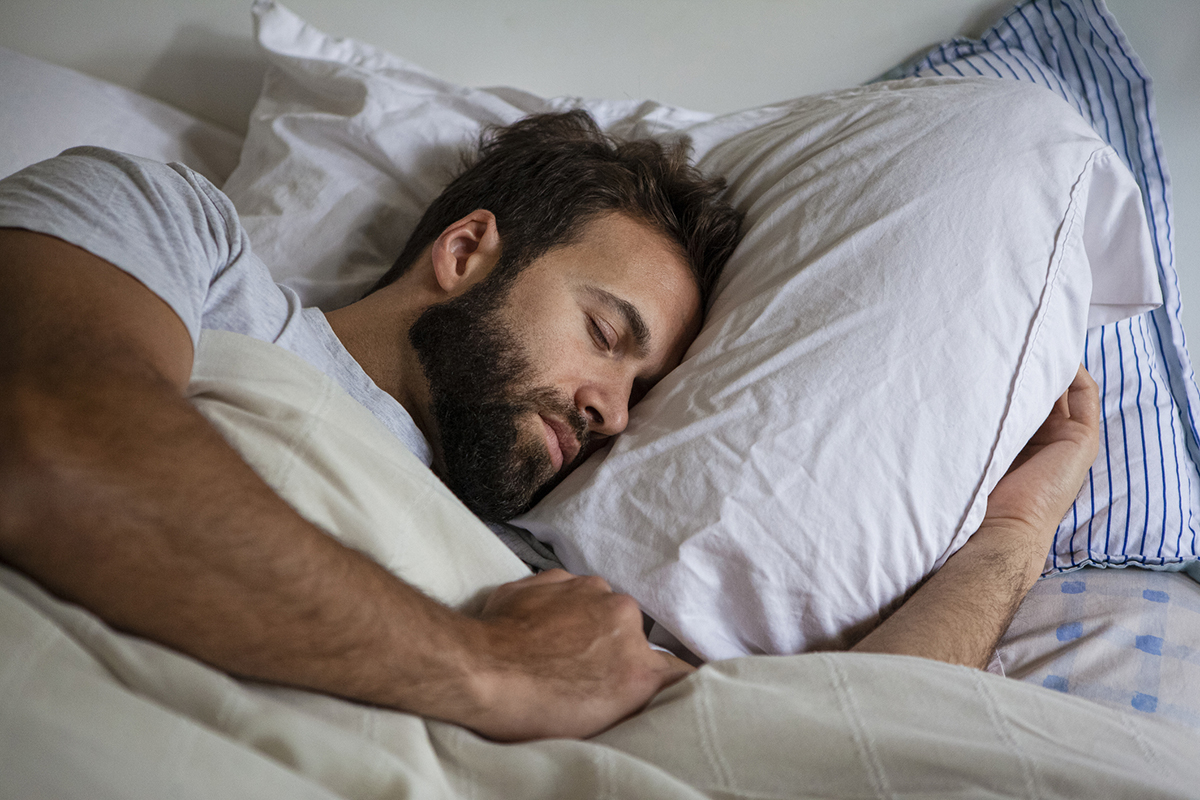Earlier this month, I covered some of the strong links between sleep and health—particularly the effects of getting too little sleep. This week, I’m providing some more sleep facts and solutions in support of Sleep Awareness Month.
1) Prescription meds don’t cut it for long-term management of sleep problems. An estimated nine million adults in the U.S. alone say they take prescription meds to try and get a good night’s sleep. But a new study showed that there was no difference in sleep quality or duration between women who took prescription drugs for 1-2 years versus those who didn’t.
Sleep medications can induce sleep, but fail to replicate natural “sleep architecture” which is necessary to confer brain and body benefits.
Moreover, a 2022 study that followed older adults who used sleep medications for about six years found they had a 48% greater risk of dementia, compared to those who didn’t use them.
As for over-the-counter sleep aids, they, too, were found to accelerate cognitive decline with chronic use. Many of these remedies employ anticholinergic antihistamines like Benadryl (diphenhydramine) to make you drowsy; they may gradually deplete acetylcholine which is an essential brain neurotransmitter.
2) Ever wonder why you’re so likely to nod off while driving? You may be sleep deprived. But even when I think I’ve gotten adequate sleep, sometimes I need to fight off drowsiness while driving by chewing gum, pinching my cheeks, or doing alternate nostril breathing.
Now there’s an explanation: The natural vibrations in cars appear to make people sleepier. New parents invoke this principle when they strap babies into the car seat and drive them repeatedly around the neighborhood to lull them into slumber.
Research using simulators shows that vibrations of a certain frequency induce drowsiness in experimental subjects within 15 minutes; by 60 minutes, alertness and reflexes are profoundly impaired.
Hopefully, automotive engineers will harness these findings to rejigger cars of the future with “good vibrations” that promote wakefulness!
3) Is so-called “catch-up sleep” actually helping you? People with busy weekday work schedules tend to party late and sleep in on weekends. They reason that even with a deficit of sleep on certain days, extra sleep on the others makes up for it. After all, five days of six hours per night of sleep plus two days of ten hours per night of sleep yields 50 hours per week of sleep which averages out to greater than seven hours per day—not too bad.
But the reasoning is fallacious according to recent studies. They contend that shifts in sleep schedule may throw the body’s metabolic clocks out of sync. Disruption of natural circadian rhythms may promote insulin resistance and weight gain.
The researchers found the bigger the difference between workday and free-day sleep schedules, the stronger the link to metabolic health problems. This phenomenon has been dubbed “social jet lag,” and it may hike the risk for diabetes and cardiovascular disease. The solution is to align the body’s rhythms with natural diurnal cycles. It appears that Ben Franklin was prescient when he said: “Early to bed, early to rise, makes a man healthy, wealthy and wise.”
4) Apropos, getting early morning sunlight can improve sleep:
“Researchers found that people who were exposed to greater amounts of light during the morning hours, between 8 a.m. and noon, fell asleep more quickly at night and had fewer sleep disturbances during the night compared to those exposed to low light in the morning.”
5) Regular exercise is an elixir for sleep. One study showed that replacing sedentary activity with light to moderate exercise 60 minutes per day improved sleep quality in perimenopausal women. Responses vary, but most studies support the benefits of activity early in the day.
6) It may be your microbiome. Studies show there’s a gut-brain linkage to sleep quality. Researchers even posit a connection between intake of prebiotic fiber and sleep efficiency.
7) One useful approach to sleep problems is CBT-I (Cognitive Behavioral Therapy for Insomnia). People with sleep problems get into a rut; they expect to toss and turn and end up dreading bedtime. CBT-I attempts to reframe their attitudes toward sleep.
Unlike traditional psychotherapy, CBT is a short-term intervention, usually consisting of 6-8 sessions. The main focus is to identify and dispel dysfunctional thoughts and behaviors that impede quality sleep. Sleep hygiene principles are invoked, like removing extraneous stimuli such as electronic devices and TVs from the bedroom; the goal is to restore the sleeping area as a peaceful haven.
Paradoxically, many insomniacs spend too much time in bed, fruitlessly attempting to sleep. Limiting bedtime via CBT-I and putting people on a “sleep diet” increases natural fatigue and improves sleep efficiency. Relaxation techniques like breathing exercises, meditation, self-hypnosis and biofeedback are often invoked in specialized clinics.
Many large medical centers offer CBT-I but there’s a free self-care app developed by the Veteran’s Administration that can introduce participants to the fundamentals called CBT-i Coach.
8) Certain nutrients can improve sleep. A group of individuals suffering from sleep problems were given vitamin D 50,000 IU once every two weeks; their sleep scores improved significantly vs. a control group not receiving supplementary D.
Another study found that children who eat fish at least once a week sleep better and have higher IQs by an average of four points. It’s thought to be the impact of Omega 3s, EPA and DHA.
9) Like many elements of a healthy lifestyle, a “Goldilocks Principle” applies to sleep. While too little sleep is detrimental, too much can also be harmful or reflect an underlying physical or psychiatric problem.
For example, deliberate sleep deprivation can be a wake-up call for as many as 50% of patients suffering from depression, a feature of which is excessive sleep.
Oversleeping (more than nine hours per night) has been linked to increased risk of inflammation, reduced immunity, and risk of chronic disease. It may be a sign of sleep apnea, narcolepsy, or a rare disorder called idiopathic hypersomnia.
10) Disordered sleep may be an early warning sign of Parkinson’s Disease. In a condition called REM sleep behavior disorder, a person acts out their dreams. Sufferers may thrash about, punch, kick or fall out of bed.
I recently saw a new patient with advanced Parkinson’s Disease. I queried his wife as to whether he had exhibited any unusual sleep behaviors many years prior to his diagnosis of Parkinson’s. Her eyes lit up: “It was as if we had a nightly boxing match!” she exclaimed.
While sleep disorders do not invariably progress to Parkinson’s Disease, it’s worth consulting a sleep specialist (usually a neurologist) to obtain a sleep study and analysis. Treatment of this type of sleep problem, interestingly, relies on melatonin accompanied by benzodiazepines, bed rails, and proper restraints.
11) CBD for sleep. Many of my patients obtain sleep benefits from a nightly dose of hemp-derived cannabidiol. My favorite is +Plus CBD Sleep gummies with melatonin from CV Sciences. The Sleep Doctor reports:
“CBD affects a network of receptors throughout the body that control functions such as pain, memory, and metabolism called the endocannabinoid system. The endocannabinoid system likely plays a role in regulating sleep-related chemicals like serotonin and the sleep-wake cycle as well.”
For more helpful sleep hints, see Leyla Muedin’s recent article, How to Get A Good Night’s Sleep. Pleasant dreams!








